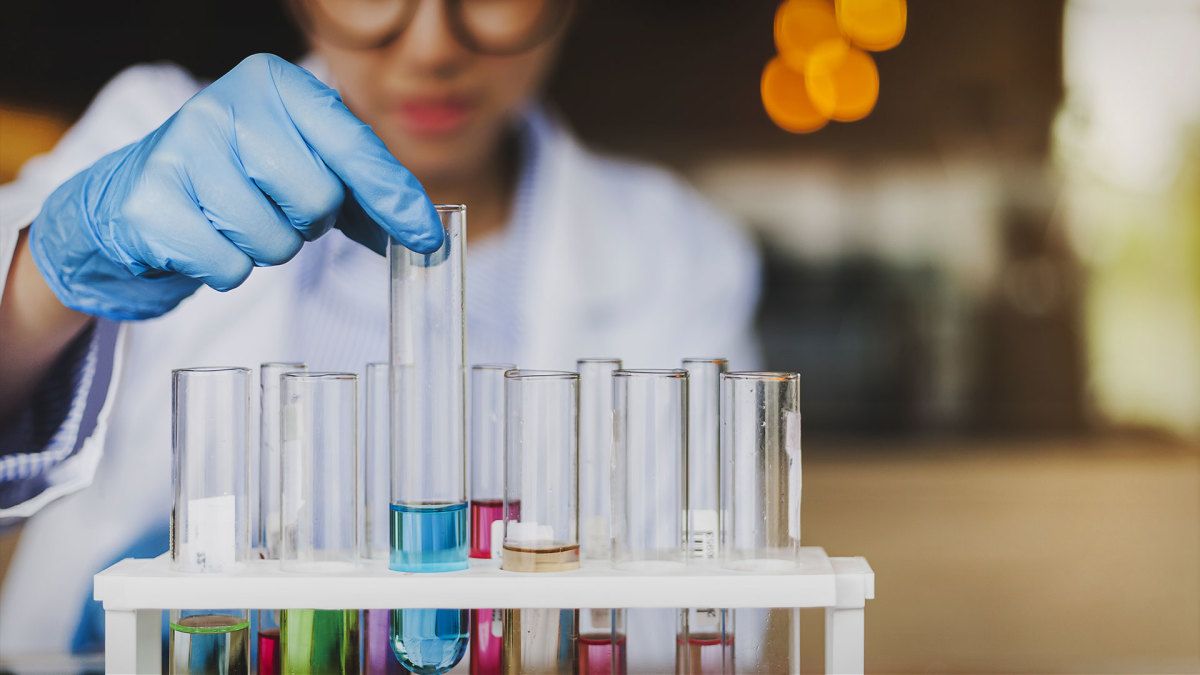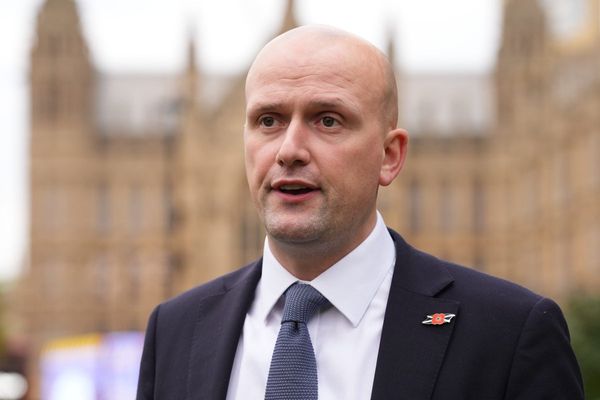
Chapter 11 bankruptcy filings in 2024 by biotech companies and other healthcare firms continued to rise after a steady increase over the past three years.
Bankruptcy filings in the health-care sector rose each year following the covid pandemic, with 25 cases filed in 2021, 46 in 2022 and 79 in 2023.
Some of the notable filings this year have included Acorda Therapeutics (ACOR) , the Pearl River, N.Y., maker of Parkinson's disease and multiple-sclerosis therapies, which on April 1 filed for Chapter 11 bankruptcy in the U.S. Bankruptcy Court for the Southern District of New York.
Related: Key car industry brand set to close down all operations
Others included Invitae Corp., (NVTA) which filed on Feb. 13 with $500 million to $1 billion in assets and over $1 billion in liabilities; and Cano Health, which filed on Feb. 4 with over $1 billion in assets and liabilities.

Shutterstock
Cancer treatment maker Gamida files bankruptcy
Biotechnology company Gamida Cell Inc., which develops stem cell treatments for several blood cancers and other disorders that include leukemia and lymphoma, on May 13 filed a prepackaged Chapter 11 bankruptcy in the U.S. Bankruptcy Court for the District of Delaware.
The filing calls for its parent, Gamida Cell Ltd. (GMDA) , to convert debt owed to funds managed by Highbridge Capital Management into 100% of the company's equity.
The debtor listed $1 million to $10 million in assets and $50 million to $100 million in debt in its petition. The U.S. firm's debt includes $75 million in 5.875% convertible senior notes due in 2026 and $25 million in secured notes priced at 7.5% and due in 2024.
Gamida Cell Ltd. had unsuccessfully sought fundraising and strategic efforts to raise sufficient capital to cover its financial obligations and continue operating.
The company also sought strategic alternatives such as an asset sale, merger, additional funding, licensing, distribution and capital restructuring options. Those efforts did not result in any viable third-party transactions, Chief Executive Abigail Jenkins said in a bankruptcy declaration.
Related: Bankrupt essential retailer liquidates several more stores
In March, senior lender Highbridge proposed the debt-for-equity transaction to take the company private as part of a comprehensive restructuring, which the Gamida parent agreed to as the only option available to prevent a liquidation under Israel insolvency law.
The Kiryat Gat, Israel, parent and its Boston-based subsidiary finalized a restructuring support agreement with Highbridge on March 26, which was unanimously accepted by all creditors entitled to vote on the plan.
The parent subsequently filed for a reorganization of its financial affairs through the debt arrangement under Part 10 of the Israeli Insolvency law on March 27 and sought a Chapter 15 bankruptcy proceeding to recognize the debt arrangement in the U.S. The subsidiary, Gamida Cell Inc., filed Chapter 11 in the U.S. on May 13 to implement the restructuring transactions.
The debtor's financial adviser, Prometheus Financial Advisory, stated in the Israeli proceeding that the debtors have a negative cash flow of $7 million per month and their expected cash balances amount to $22.9 million. The adviser recommended that the Israeli proceeding move on an expedited timeline, and the Israeli court approved the debt arrangement on May 8.
More bankruptcy:
- Popular retailer gets crucial warning as bankruptcy rumors swirl
- Grocery chain closes stores, files Chapter 7 bankruptcy liquidation
- Luxury apparel chain shuts U.S. stores in Chapter 15 bankruptcy
Under terms of the restructuring support agreement in the Chapter 11 case, Highbridge will provide exit financing. That funding consists of a $45 million senior secured credit facility that includes $30 million in new funding, $15 million in additional commitments funded by way of delayed draw term loans, and 100% of outstanding secured debt obligations owed to Highbridge equal to about $4.4 million.
The restructuring agreement calls for general unsecured creditors, except for Highbridge, to be paid in the ordinary course of business, while existing stockholders have the right to future cash payments in the form of conditional value rights contingent on the achievement of certain milestones in the coming years.
The parties agreed to complete all the restructuring transactions on or before May 24 to prevent a default on debts, to secure the necessary funds to pay general unsecured creditors in full and avoid a liquidation. The debtor has requested that a disclosure statement and plan confirmation hearing be held on May 22. The debtor seeks to emerge from bankruptcy shortly thereafter.
Gamida Cell background: Went public in 2018
Gamida Cell Ltd. was founded in 1998 in Israel and became a publicly traded company in 2018, while its U.S. subsidiary was created in 2000 to commercialize the parent's products in the U.S. Gamida Inc. as of May 1 had 36 employees in the U.S.
Gamida's primary product is Omisirge, which is a blood-based cell therapy for blood cancers. It has the potential to be a stem cell donor source for patients with high-risk leukemia and lymphoma who require stem cell transplants and for patients with severe hematologic disorders such as aplastic anemia.
The company estimates that fewer than 10,000 people undergo stem cell transplants each year. Gamida's treatment can be delivered within 30 days as the manufacturing process takes 21 days before being shipped to the transplant center in the U.S., court papers said.
Because of the small number of potential patients, the company sells the treatment at a high price of $300,000 per patient, which it says is necessary to recoup its investment in development and high manufacturing costs.
Related: Veteran fund manager picks favorite stocks for 2024







